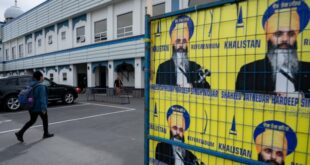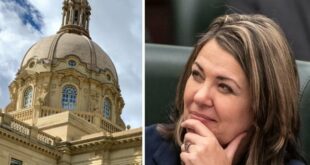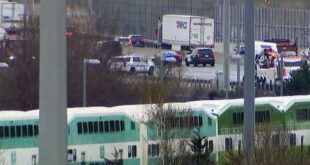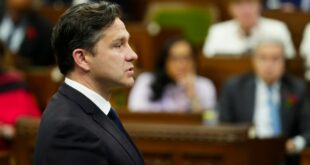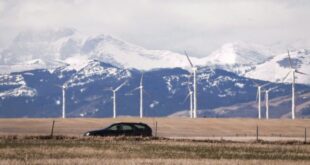I've had some comical and uncomfortable experiences dating in Alberta as a Black woman
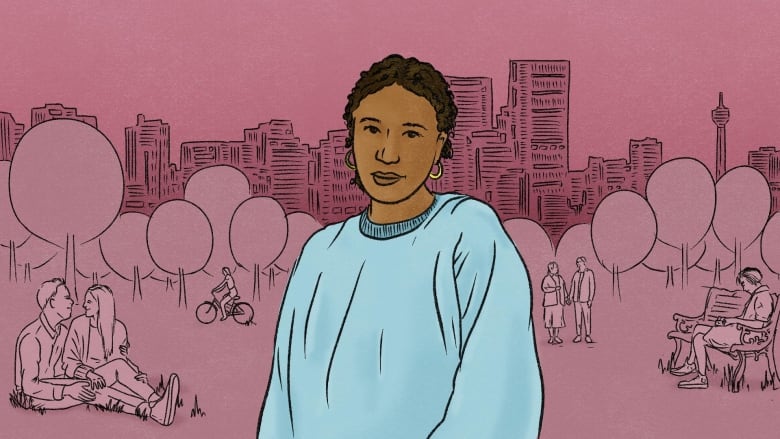
This First Person article is written by Rheanna Lauren, a multi-hyphenate artist in Calgary. Her story is part of Black on the Prairies, a CBC collection of articles, essays, images and more exploring Black life in Alberta, Saskatchewan and Manitoba. For more information about First Person stories, see the FAQ.

Ten years ago, in my hometown of Calgary, I broke up with my first love: a mountain-loving, river-bathing, harmonica-playing, red-haired, white man I'd met in my Mennonite Brethren church.
At the time, I was a bit of a hippie myself. I wore second-hand or ethically produced clothes, braided my hair in lavender almond oil at night, and worked at an organic grocery store. One of my non-negotiables in a guy was that he could not have a smartphone — I kid you not. I valued being present (still do), and listened to a lot of Arcade Fire and Dave Matthews Band.
But something about that 2012 break-up prompted me to realize that — through no fault of my ex-love — I'd been repressing interests, music and fashion choices that were in fact, the more "Black" sides of me. When I ended that relationship, it felt like I broke up with part of the cultures I grew up in, too.

The dating world is already complex for me — a multilingual, neurodiverse, artistic, entrepreneurial, liberal, Christian-ish woman.
But as a mixed-race woman living in Alberta, dating presents a range of other discomforts — be it memories of my white friends getting more attention from the boys in school, being culturally fetishized, and even going out with a man who falsely claimed that he was part-Black (it's a long, strange story).
Growing up in Black and white
My mother is a white Canadian woman of mixed European descent who grew up in Edmonton. My father is a Black American, born in California and partially raised in Calgary. My Black grandma remarried into a fascinating lineage that has roots in two different Black settlements — Campsie, located just south of Barrhead, Alta.,, and the other north of Maidstone, Sask.
The world I actually grew up in was far less diverse.
As a '90s baby, I grew up in predominantly white environments — raised in the cookie-cutter suburbs of Calgary's deep south, a member of a Mennonite Brethren church and eventually a graduate of Centennial High School. Most of my friends were white, too. With them, I experienced typical parts of growing up in Alberta: making fun of Nickelback, cliff-jumping, hockey humour, Tim Horton's and Lizzie McGuire. Prairie stuff.
But as one of three Black kids in my whole grade throughout middle school, I also experienced moments that made sure I didn't forget that I was a minority.

Remember the token Black actors in those terribly (and hilariously) produced educational videos? In middle school, whenever a Black girl would come on screen, a couple of white classmates would inevitably announce, "Hey look, it's Rheanna!"
Some comments were more serious than others; like when a white classmate in Grade 7 "jokingly" — and repeatedly — called me the n-word. The unconscious need to assimilate meant I engaged in and allowed some of this hurtful behaviour.
I remember wishing my name was more "normal" (read: colonial). Perhaps Chelsea. Or Monica.
In high school, I was introduced to a slightly more diverse peer group and began to openly enjoy R&B, hip-hop and rap music, basketball and culturally Black-inspired clothing.
By my early 20s, attending live arts events like 10 at 10 and Calgary's One Big JAM, I discovered my unspoken desire to be around more people who looked like me and who created in the genres of my roots. And I realized that I'd grown up subconsciously rejecting a lot of stereotypically Black interests, activities and music styles for fear of being further "othered."
Around this same time, I took trips to Havana, Toronto and New York in 2013 where I had my first experiences feeling like a non-minority. Blending into a sea of brown faces was revelatory and refreshing — to simply exist, to not be stared at because I was different.
After living much of my life in environments that were predominantly white, I had discovered plenty about that half of myself. It was now time to connect with the other half of me — the half that the world often fully saw me as.
At 21, for the first time, I found myself dating a man of colour.
Navigating the grey areas of dating
Dating in 2022, in a world changed by #MeToo, Donald Trump and COVID-19, is comically, even tragically, hard. Does one wait for the love of their life in a trendy overpriced coffee shop, or dreadfully join the others on The Apps? Does one search far and wide for something serious, or lean into the nonchalant, slow-death ether of never-ending casual dates?
In my dating journey, I've always been open to exploring a connection with men from any ethnicity. But in the past few years, I have been drawn almost exclusively to men of colour because, quite frankly, it feels safer.
Why? Well, there's the element of wanting to feel understood in cultural practices and humour. But there's the more serious side as well: how does one truly know another's commitment to racial equity and justice? Will I find myself needing to educate, doing racial equity labour in what is meant to be an enjoyable relationship? I find myself subtly screening men to see whether they are a true ally and a safe space, racially and culturally.
You see, after those trips in 2013, life started to change. I started learning how to care for my curly hair properly, I stopped hiding my curves, and I dated a Black man for the first time. All of these seemingly unrelated factors were beginning to collide to re-shape me into a person that more holistically included more of who I truly was.

I was not, and am not, a monolith. I like walking barefoot in the grass and going to the club to turn up to GloRilla in a bodycon dress with my friends. I like Patrick Watson and Cardi B, I like emo rock and trap music, I like tacos, ramen and sushi as well as collard greens, mac and cheese and cornbread.
The further I grew into my diverse interests and cross-cultural identity, the more difficult it became to date in this hockey bro, corporate, country oil city called Calgary. I came to realize that my chances of meeting a great match were pretty slim in an organic YYC encounter.
So in the summer of 2021, with equal parts curiosity and reluctance, I joined The Apps: Hinge and Bumble. I thought I would open up my horizons by trying something new, but what ensued was simultaneously fascinating, healing, annoying, beautiful, frustrating, hopeful and discouraging.
Being able to change my location on the apps whenever I had a trip coming up, I went on a handful of dates (some lovely, some scary) in places like Toronto, Vancouver, Los Angeles, New York City, Miami and Atlanta. Most of these dates were with Black men — for the most part, refreshing experiences where I learned even more about myself.

In a strange way, I feel like the lack of relatable men for me in Alberta stunted my awareness of what I even want in a partner. I just hadn't had many opportunities to go on first dates with people who I could relate to in a cross-section of culture, ambition, faith and more.
I still pop on the apps every so often, but I do prefer to meet people organically. I plan to spend a lot more time in the United States in 2023 and am optimistic about the opportunity to explore dating there, in due time.
I honestly can't imagine finding love in Calgary, but as the city becomes more diverse, as the world becomes more emotionally intelligent, and as globalization continues, perhaps YYC will surprise me one day. If the pathway aligns, I'll be open to exploring it.
But for now, I'm not counting any chickens before they hatch. And hey, to be safe, I'm not going to count the eggs either.
Black on the Prairies is supported by Being Black in Canada, sharing stories about the experiences of Black Canadians. Do you have a compelling personal story that can bring understanding or help others? Here's more info on how to pitch to us.

ABOUT THE AUTHOR

Freelance contributor
Rheanna Lauren is a multilingual, multidisciplinary artist, community activator, and event and multimedia producer, who was born and raised in Mohkinststis, Treaty 7 (Calgary). She has written as a copywriter, poet, songwriter, and project producer. She enjoys studying various languages and cultures, bringing people together for unforgettable memories, and empowering excellent art.
*****
Credit belongs to : www.cbc.ca
 MaharlikaNews | Canada Leading Online Filipino Newspaper Portal The No. 1 most engaged information website for Filipino – Canadian in Canada. MaharlikaNews.com received almost a quarter a million visitors in 2020.
MaharlikaNews | Canada Leading Online Filipino Newspaper Portal The No. 1 most engaged information website for Filipino – Canadian in Canada. MaharlikaNews.com received almost a quarter a million visitors in 2020.


